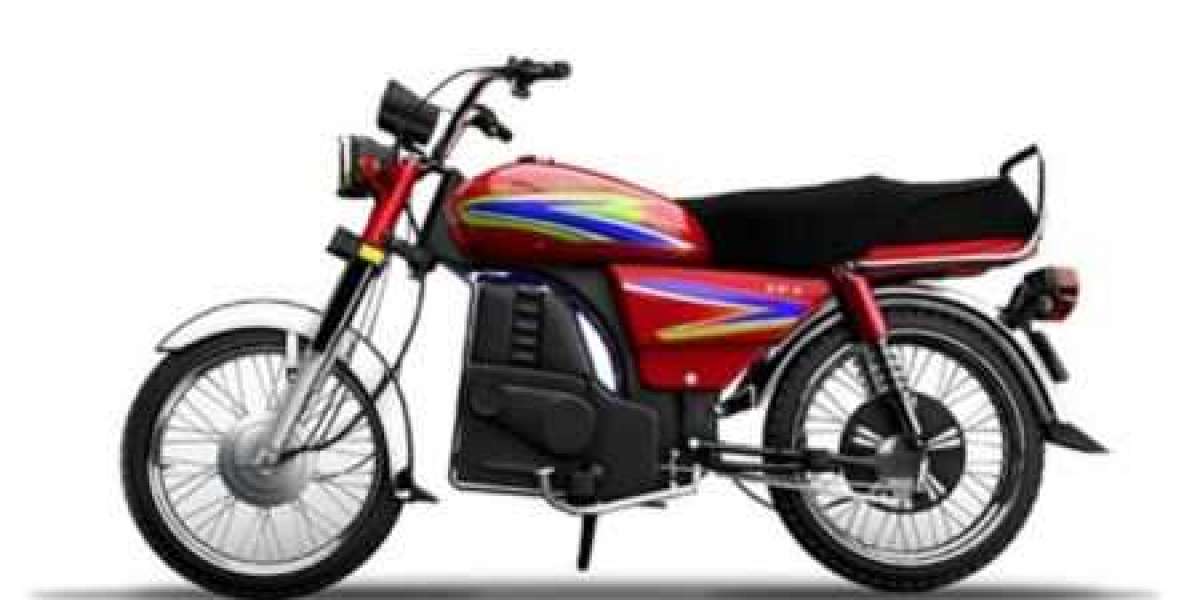In recent years, Pakistan has seen a growing shift toward sustainable transportation. With rising fuel costs, increasing environmental concerns, and urban traffic congestion, electric bikes (e-bikes) have emerged as a practical solution for daily commuting. Among the brands leading this revolution is Ravi Electric Bike, offering an affordable, eco-friendly, and efficient alternative to traditional petrol-powered two-wheelers.
Why Electric Bikes Are Gaining Popularity in Pakistan
The popularity of electric bikes in Pakistan is growing steadily for several reasons:
Soaring Fuel Prices: The high and unstable prices of petrol have made conventional motorbikes expensive to run on a daily basis.
Environmental Concerns: Air pollution is a growing issue in major cities like Lahore, Karachi, and Islamabad. Electric vehicles (EVs) offer a cleaner option, producing zero tailpipe emissions.
Affordable Maintenance: Compared to petrol bikes, electric bikes have fewer moving parts, resulting in lower maintenance costs.
Government Support: The Pakistani government has shown interest in supporting electric vehicle adoption through policy initiatives and incentives.
Amid this context, Ravi Electric Bikes have entered the market as a smart choice for eco-conscious and budget-minded commuters.
About Ravi Electric Bike
Ravi is a well-established name in Pakistan’s automotive industry. Known for producing motorcycles and rickshaws, the company has now taken a leap into the electric vehicle space with its new line of electric bikes designed specifically for the local market.
Ravi Electric Bikes combine modern technology with locally relevant design, offering riders a smooth and cost-effective commuting experience. The bikes are manufactured keeping in mind the needs of Pakistani users: durability, affordability, performance, and ease of use.
Key Features of Ravi Electric Bike
Let’s explore some of the standout features of Ravi Electric Bikes that make them a top contender in the e-bike market in Pakistan:
1. Cost-Efficient Transportation
Ravi Electric Bikes consume electricity instead of petrol, which drastically reduces daily commuting costs. Charging a bike costs significantly less than filling a petrol tank. On average, the cost per kilometer is 80-90% lower than that of a petrol bike.
2. Eco-Friendly Operation
Electric bikes produce zero emissions, helping reduce the carbon footprint and fight air pollution. In urban areas where smog and vehicle emissions are a major problem, switching to an e-bike can contribute to cleaner air and a healthier environment.
3. Smooth and Quiet Ride
The motor of Ravi Electric Bikes runs quietly, offering a noise-free riding experience. This feature not only reduces noise pollution but also provides a more pleasant journey, especially in traffic-heavy cities.
4. User-Friendly Design
The design of Ravi’s electric bikes is tailored for comfort, ease of handling, and reliability. The bikes are lightweight yet sturdy, making them suitable for both men and women of various age groups.
5. Low Maintenance
Without an engine, gearbox, or clutch system, electric bikes require less maintenance. The absence of frequent oil changes and engine tune-ups helps users save money and time in the long run.
6. Modern Features
Ravi Electric Bikes often come equipped with digital displays, LED lights, mobile charging ports, and regenerative braking systems—features that enhance the user experience and reflect modern engineering.
Performance and Battery Range
One of the most critical aspects of an electric bike is its battery performance and range. Ravi Electric Bikes are generally equipped with lithium-ion batteries or lead-acid batteries, depending on the model and budget.
Battery Range: On a full charge, Ravi Electric Bikes can typically travel 50–70 kilometers, making them ideal for city commutes and short-distance travel.
Charging Time: Most bikes require 4 to 6 hours for a full charge using a standard home socket.
Top Speed: Ravi Electric Bikes offer a top speed of around 50–60 km/h, which is sufficient for safe and efficient urban commuting.
Affordability and Pricing
Affordability is a key selling point for Ravi Electric Bikes. While the price may vary depending on the model and features, most options are available in the range of PKR 100,000 to PKR 170,000, which is competitive considering the long-term savings on fuel and maintenance.
Moreover, as electric bikes require no monthly fuel expenditure, users can potentially recover the bike’s cost within 1–2 years of regular use.
Ideal for Daily Commuters Students
Ravi Electric Bikes are particularly appealing to:
Office Workers looking for a cheaper and faster alternative to buses or rickshaws.
Students who need an economical way to travel to educational institutes.
Delivery Riders seeking a low-cost option for food and parcel delivery.
Environmentally Conscious Citizens aiming to reduce their carbon footprint.
Challenges and Considerations
While electric bikes offer numerous benefits, there are some challenges to consider:
Charging Infrastructure: Public EV charging stations are still limited in Pakistan, making home charging a necessity.
Battery Replacement Costs: After a few years, the battery may need replacement, which can be a significant cost.
Weather Impact: Battery performance can decline in extremely hot or cold temperatures.
That said, companies like Ravi are actively working to overcome these issues by improving battery technology and expanding after-sales support.
Final Thoughts
The Ravi Electric Bike stands as a promising solution for Pakistan's urban transport challenges. It blends affordability, environmental responsibility, and modern convenience, making it a strong contender for the future of commuting in the country.
As fuel prices continue to rise and the need for sustainable transportation grows, electric bikes like Ravi’s offer a smart, long-term investment for individuals and families. Whether you’re a student, a worker, or an eco-conscious citizen, making the switch to a Ravi Electric Bike could be your step toward a cleaner, greener, and more cost-effective future.








